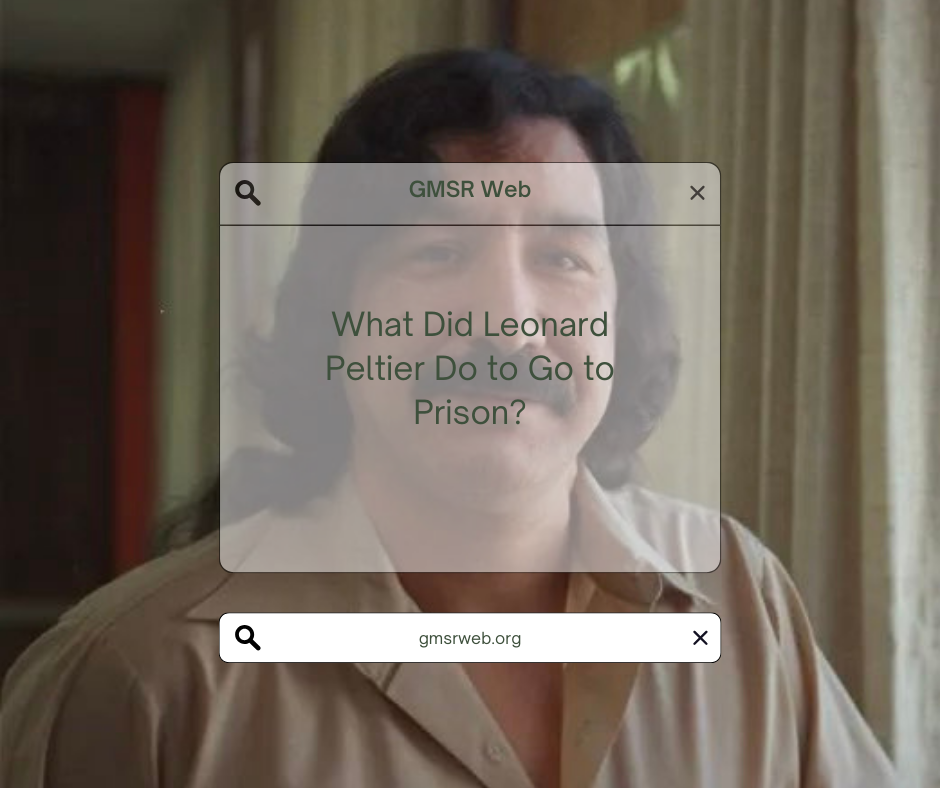Leonard Peltier, a Native American activist, and a key figure in the American Indian Movement (AIM) has served nearly half a century in prison. His conviction arises out of the fatal shooting of two FBI agents in June 1975 during a shootout on the Pine Ridge Indian Reservation in South Dakota. Overs the years it has become one of the most discussed cases related to justice, indigenous people’s rights, and misconduct in the US legal system.

The Incident at Pine Ridge
The Pine Ridge Indian Reservation was the scene of an FBI chase on June 26, 1975, during which agents Jack Coler and Ronald Williams were killed. They managed to provoke a severe confrontation between AIM and the federal agents which culminated in a shoot-out. The two agents were reportedly injured in the shoot out and then shot dead at close range. Leonard Peltier was also named as having been at the scene and was subsequently captured and charged.
The Investigation as well as Extradition.
After the Pine Ridge affair, Peltier escaped to Canada. On February 1976 he was arrested by the Royal Canadian Mounted Police. He was extradited to the U.S. in December of the same year, and the U.S authorities relied on the affiants of Myrtle Poor Bear. Poor Bear said that she was an eyewitness and Peltier’s girlfriend. Nevertheless, she subsequently repudiated her claim and stated that she never had a chance to meet Peltier, and that her statement had been elicited by the FBI agents. Nevertheless Peltier’s extradition remained legal under Canadian law owing to these discoveries.
The Trial and Conviction
On April 7, 1977 Peltier was found guilty of first degree murder in Fargo North Dakota. Unlike his co-defendants, who were acquit for the act of defending themselves, Peltier was convicted with the help of forensic evidence which was produced by the prosecution. The jury was informed that the agents were shot at close range and Peltier was given two consecutive life terms. But there were some discrepancies and some controversy in the course of the trial that followed the acquittal.
Allegations of Misconduct
Many people have been critical of Peltier’s trial since it took place, and believe that he was falsely convicted. Some of the key witnesses testified later that their testimonies were forced and the FBI has been blamed for concealing materials that may have been useful to Peltier’s defense. Amnesty International and other human rights organizations have accused the authorities of bias in the trial and demanded that Peltier be set free. These allegations of misconduct have therefore made his case a cause celebre for civil rights activists and Indigenous people across the globe.
Clemency and Release
After the previous appeals and clemency attempts, President Joe Biden granted Leonard Peltier’s clemency on January 20, 2025. Although the commutation was not a full pardon, it provided for Peltier to move from the aged, ailing prisoner to home detention. Supporters of the move celebrating it as a move towards justice, opponents on the other hand, which included police officials, argued that Peltier was guilty and should have been behind bars instead of being out as a free man.
Conclusion
Leonard Peltier’s incarceration for the murder of two FBI agents is one of the most high profile cases in contemporary American legal system. Charges of coerced confessions, suppressed evidence, and the background of Native American protest have continued to maintain his story in the public sphere. These questions remain relevant even after his release and include issues to do with justice, equity, and the way Indigenous activists are treated in America.
All information and references were sourced from: FBI History, Wikipedia, Amnesty International, Free Leonard Campaign, AP News.

Mia Trevino (She/Her) is a Records Administrator at Dinsmore & Shohl LLP. A proud Humble High School alumna from Texas, she excels in managing organizational records with precision and dedication.


